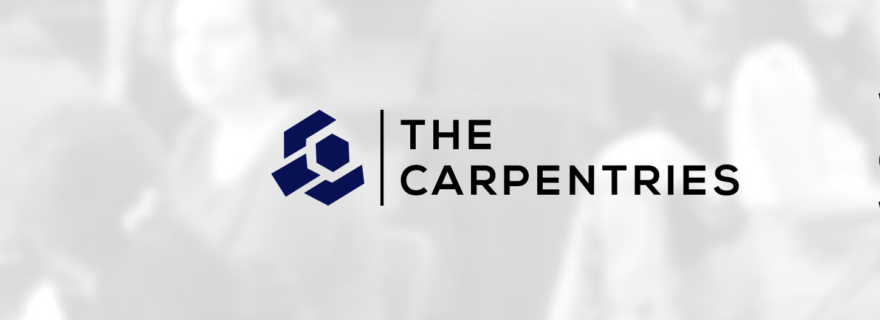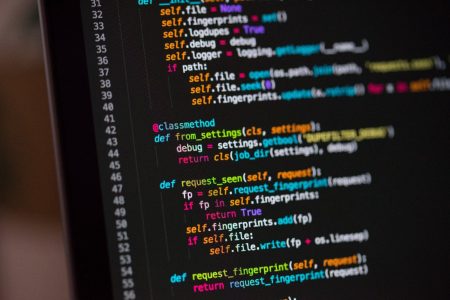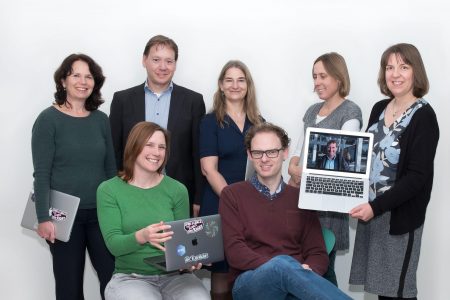The Centre for Digital Scholarship Collaborates with The Carpentries for Innovative Trainings
Recognising that there is a growing need among researchers, teachers, and students to develop data science skills, the CDS has begun to collaborate with the international Carpentries community on the organisation of interactive workshops about coding literacy and computational thinking.
The importance of phenomena such as big data, artificial intelligence, and data science continues to grow, both in academia and in society, and, as a result of this, more and more researchers, students, and librarians have begun to feel the need to develop their mastery of coding and of data analysis. As anyone who has ever started to learn a new programming language knows, however, the learning curve for topics such as these can occasionally be quite steep. The Carpentries can fortunately help to flatten this curve.
The Carpentries is an international not-for-profit organization which curates a large collection of openly available learning materials on software development and on data science. Additionally, the Carpentries fosters an active community of volunteers who maintain and develop these learning materials and who can also teach workshops about these topics. The extensive collection of community-developed learning materials include lessons on version management with Git, programming in Python, data analysis with R, and data management using SQL, among many other topics. The Carpentries is funded by membership fees, grants, and donations, among other sources.
There are three main branches within the Carpentries community. Software Carpentry concentrates mainly on academics engaged in the development of research software. The lessons that are part of the Data Carpentry discipline-related curricula are mostly relevant for researchers interested in data science and in data management. Library Carpentry, thirdly, aims to improve the software and data skills of librarians and other information specialists. The lessons that are developed within these subcommunities all have a slightly different focus, and each of the three branches is guided by its own Curriculum Advisory Committee.
The physical or online workshops that are organised under the umbrella of The Carpentries generally have fixed structure. The workshops need to cover one or more lessons from the Carpentries curriculum. Different roles need to be assigned for the purpose of the workshop. The workshop is coordinated, first of all, by a central host, and the classes are taught by instructors. If possible, the instruction takes place via live coding. This means that the instructor needs to type in all the computer code manually during the classes and that the function of this code needs to be explained explicitly. The organisers of the workshop also need to appoint helpers, who can provide technical support or answer smaller questions that arise during the workshop. The Carpentries places great value on making sure that the participants, instructors, and helpers abide by the Carpentries code of conduct. Hosts normally do their best to create a safe and supportive learning environments by asking all participants to use welcoming and inclusive language, and to give and to accept constructive criticism.
The goal of the workshops is first and foremost to enable participants to apply the knowledge and the skills they have acquired in their work, but a secondary aim is also to expand and to strengthen the international community of instructors and helpers. People who have attended a Carpentries workshop are encouraged to become a helper in a later workshop, and such helpers may ultimately develop into instructors. People who enjoy teaching in a Carpentries workshop can also choose to become a certified instructor. If this is indeed the case, they need to complete an Instructor Training course organised by the Carpentries. Such courses last two full days, and cover and foundational teaching skills and the basics of digital pedagogy.
In the past few years, The Leiden Centre for Digital Scholarship has been involved in the work of the Carpentries in a number of ways.
- Together with researchers and librarians from the TU Delft, the CDS has been organising Data Carpentry Workshops for the Social Sciences three times a year since January 2021. This workshop focuses on the organisation of spreadsheets, reproducible data cleaning with OpenRefine, the basics of programming in R, and data wrangling and data visualizations with the TidyVerse. These workshops are usually attended by about thirty people. The organizers try to appoint one helper for every ten participants. Since 2022, the pool of hosts, helpers, and instructors was enlarged with colleagues from Erasmus University and the VU in Amsterdam.
- Next to this, Kristina Hettne has also been teaching in Library Carpentry workshops twice a year since October 2020. These workshops were organised in collaboration with librarians of the University of Amsterdam, the Vrije Universiteit, Radboud Universiteit, and Tilburg University. They cover topics such as regular expressions, the Unix shell, and OpenRefine.
- Ben Companjen, Kristina Hettne, and Peter Verhaar have obtained their official Carpentries instructor certificate, meaning that they can teach any Software Carpentry, Data Carpentry, or Library Carpentry lesson.
- Ben Companjen is one of the maintainers of the Data Carpentry lesson about OpenRefine for Social Sciences.
- In 2022, UBL became an official member of The Carpentries to support the maintenance and the growth of the Carpentries community.
The involvement in The Carpentries will continue in 2023.
- A new series of Data Carpentry Workshops has been scheduled. The first workshop in this series took place on 21, 22, 24, and 25 February. This first workshop of 2023 will take place online, but, since most of the restrictions resulting from the COVID pandemic have now been lifted, the workshop that is planned in June 2023 will take place in person at Leiden University Libraries.
- The next Library Carpentry workshop will take place on 27 and 28 March and on 3 and 4 April. This workshop will take place online and the aim is to have one in-person and one online workshop per year. New for this workshop is that an introduction to Python will replace the Unix shell lesson.
- The CDS will explore the possibility to organise new workshops on topics such as Machine Learning or Image Processing. At present, there are already a number of lessons on these topics in development.
All-in all, this involvement in the Carpentries is very productive and very inspiring for instructors and participants. It is very rewarding to familiarize colleagues with the basics of computational thinking and to be part of an international community intent on teaching and on learning. If you would like to participate in a workshop, are interested in the curriculum, or have another question around the Carpentries feel free to contact us at the CDS (cds@library.leidenuniv.nl). We announce upcoming workshop on our website (https://www.library.universiteitleiden.nl/about-us/centre-for-digital-scholarship/workshops).





